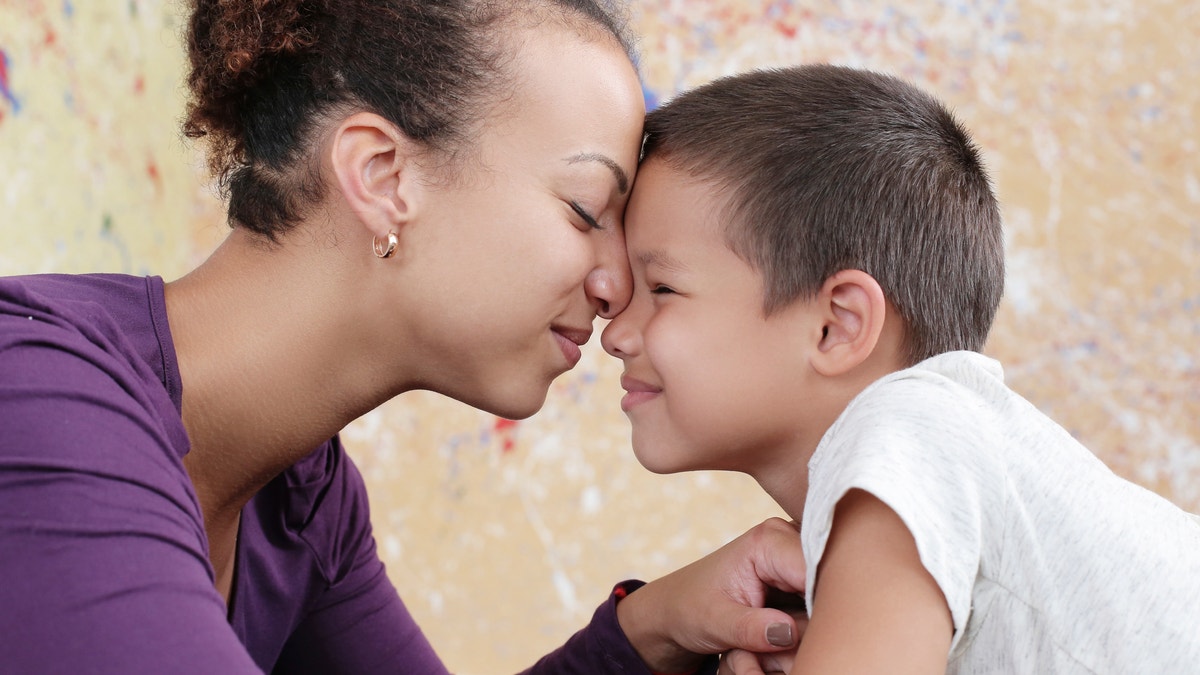
Family. Beautiful mother and her cute son (Yeko Photo Studio)
Between sleepless nights, toddler meltdowns and kids pushing your buttons, parenting is no walk in the park. In fact, a study published in the journal Demography found that in the first year after birth, parents were less happy and the effect was worse than divorce, unemployment and even the death of a spouse.
The good news however, is that no matter how hard it may be, with a few strategies and a shift in perspective, it is possible to be a happy parent. Here, experts share their tips.
1. Connect with your kid.
Between rushed mornings, shuttling to after-school activities and resolving sibling squabbles, parenting can often feel like pure drudgery. Although the natural thing is to want time away from your kids, when you do you become even more disconnected from them and more struggles ensue.
Where true happiness lies as a parent is in connection, said Dr. Laura Markham, a clinical psychologist in New York City and author of “Peaceful Parent, Happy Kids,” and “Peaceful Parent, Happy Siblings.” You certainly don’t have to spend 24/7 together, but carving out time with your children will make both of you happier.
2. Be proactive.
If you know you tend to snap at your kids at certain times of the day, find ways to set yourself up for success so you don’t lose it. Even though you still might pour yourself a glass of wine at dinner when you’re kids are running around the house, make the meal ahead of time in the slow cooker and give yourself one less thing to worry about.
3. Stop yelling.
You might be a yeller, but the good news is that you can break the habit if you want to.
The first step is to become aware of when you’re yelling and then have a list of things you can do to feel calm. It could be splashing water on your face, laughing out loud, breathing deeply or walking into another room.
Try to let other non-kid frustrations slide too.
“That way, even when you’re just a little annoyed with your child, if you’re doing that on a regular basis you’ll find that you’re much calmer when you do start to yell and get upset,” Markham said.
It can take up to three months to stop yelling altogether, but you’ll not only feel happier, you’ll be teaching your child that it’s possible to feel angry without taking it out on other people, she said.
4. Be kind to yourself.
One of the best ways to be a happy parent is to take care of yourself.
“Ultimately, the research shows running on full means you have to fill yourself up. You can’t just expect life to fill you up,” Markham said.
Accept your mistakes, use positive self-talk and be your own cheerleader.
5. Nix the guilt.
Laying on the guilt increases your stress and makes you react to your child in ways that you don’t want to, said Elizabeth Lombardo, a psychologist in Chicago, Ill. and author of “Better Than Perfect: 7 Strategies to Crush Your Inner Critic and Create a Life You Love.”
One of the best ways to stop feeling guilty is to erase the word “should” from your vocabulary: I shouldn’t have done that or I should be more (fill in the blank).
6. Rate your stress.
Throughout your day, stop and think about your level of stress on a scale of 1 to 10 and do something about it. It’s different for everybody, but it might mean hitting the gym, meeting a friend for coffee or taking time to meditate, even if it’s just for 5 minutes.
7. Be grateful.
Although it’s probably not going to help in the moment when your child is pushing your buttons, studies show a regular practice of gratitude is the key to happiness. You can keep a gratitude journal, write your child a thank you note for being extra helpful or thank your higher power for your blessings.
8. Let it go.
If you’re spending so much of your time volunteering for the PTA, making Pinterest-worthy cupcakes or cleaning your house, you can feel depleted. Think about how important your time is and if your commitments are aligned with your personal values and strengths. Then focus on one or two things that are important, and delegate, outsource or let go of the rest.
9. Get some retail therapy.
A recent study published in the journal Social Psychological and Personality Science found that buying things can make us happy over the long-term, while experiences, like a vacation can give us intense happiness but it can wane over time. Both a trip to the mall or a trip the Caribbean can pay off, just make sure it’s in your budget because any amount of debt will squelch the boost in happiness you’ll get.
10. Make time for each other.
Whether it’s a regular date night or 10 minutes for coffee before the kids wake up, carving out time for your spouse and putting each other first can pay off in the parenting department.
“The stronger you two are the more love you’re going to have in your household and the better co-parents you’re going to be,” Lombardo said.
